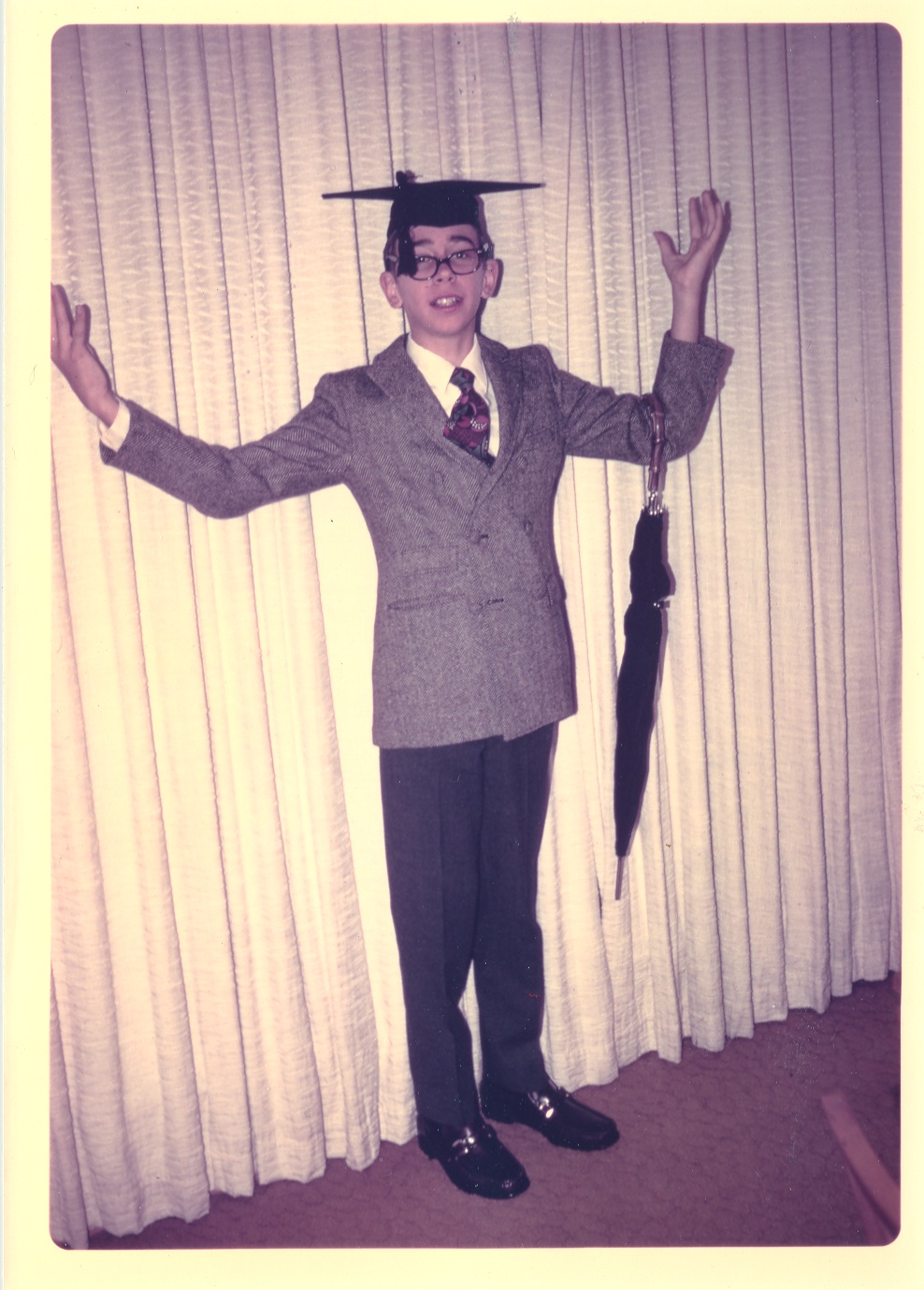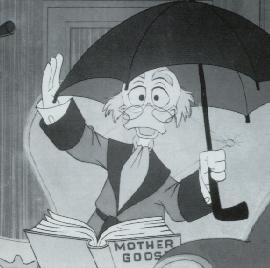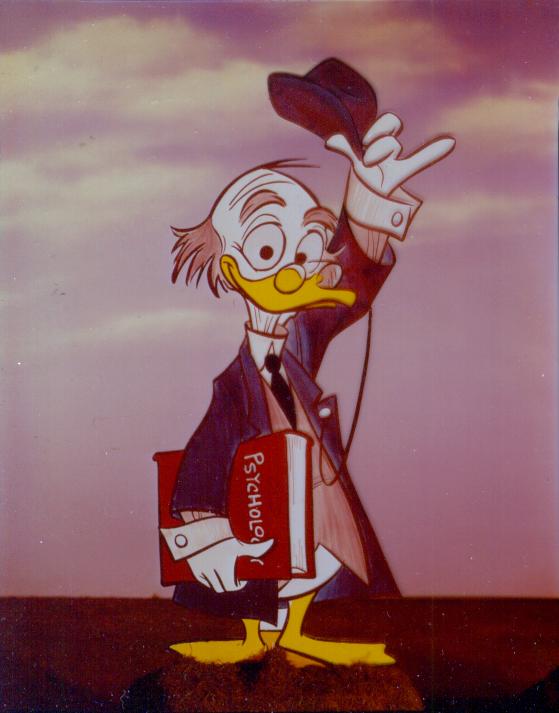Portrait of an Aca-Fan as a Young Man or How I Became a Qwack!
/ Recently, going through an old family album, I stumbled upon a photograph of Yours Truly in Seventh grade which I felt an obligation to pass along to my regular readers. Hillary Clinton famously dug out the evidence that Barack Obama has been talking about running for president since he was in Kindergarten. This photograph suggests that I might have had some inkling about my future profession as early as my 13th birthday.
Recently, going through an old family album, I stumbled upon a photograph of Yours Truly in Seventh grade which I felt an obligation to pass along to my regular readers. Hillary Clinton famously dug out the evidence that Barack Obama has been talking about running for president since he was in Kindergarten. This photograph suggests that I might have had some inkling about my future profession as early as my 13th birthday.
A little explanation is in order: the young gentleman you see before you is a character, "Professor Heinrick Von Jenkins," which I performed in my elementary school talent show. This particular Professor Jenkins was an expert on Children's Literature who is obsessed with the themes of violence found in "Rockabye Baby," "Humpty Dumpty," and "Goldilocks and the Three Bears." Unlike the modern persona of Professor Jenkins, known for his appearances on radio, television, film, and blogs, critiquing the evidence that media violence leads to real world violence, this earlier comic persona was convinced that reading children such stories would have a traumatic impact on their development. The performance was totally over-the-top but it also offers a snapshot of what I thought a professor was at a moment in my life when I would have known no academics first hand. (At the time, I imagined growing up to be a stand up comic.)
Unlike many of my classmates in graduate school or many of my MIT colleagues today, I didn't grow up within an academic family. Indeed, I was the first member of my family to go to graduate school and certainly the first to become a university professor. The only professors in my life were those I knew from television -- the kindly Mr. Wizard who taught boys and girls how to do experiments using everyday materials, the Professor on Gilligan's Island who seemed to know everything about everything except where the heck they were, the narrator of all of those great Frank Capra science film which Bell Labs produced in the early 1960s, and most importantly, Professor Ludwig Von Drake, who introduced me to the Wonderful World of Color on the Walt Disney television series.

You can see a certain resemblance to Ludwig Von Drake in the image above -- including the glasses pulled down on my nose and the umbrella draped over my arm. (That's not to mention the use of the Germanic, Heinrich, to refer to my fictional persona -- in those days, so many of the experts I encountered on television had German backgrounds).
I always think of Von Drake as the forgotten duck. While comics fans have resurrected Carl Bark's Uncle Scrooge comics, and Don Rosa has done a really wonderful series of new adventures for the character which respectfully integrate as many details from the original works as possible, there has been no such effort to respect the memory of the befuddled yet widely read fowl. Indeed, some years ago, I had a meeting with a top executive at the Disney corporation and suggested that resurrecting Von Drake might be the ideal way for the company to break into the serious games space, given the ways that he had emerged from the company's response a generation before to the Sputnik crisis and the anxiety that young Americans were falling behind in the study of science. Unfortunately, the executive had no memory of the character and when I suggested that he had been modeled after Werner Von Braun, he called him a "Nazi." Needless to say, the conversation didn't go anyplace fruitful from there.
Rediscovering the theme song for the character, I was struck by the interdisciplinary nature of his expertise, including his deft bridging of what C.P. Snow famously described as the Two Worlds of science and humanities: "people say Ludwing what makes you so smart you know everything from science to art I'm forced to admit after study I find it's just my superior mind." Later in the same song, he lists the areas of his expertise: "I'm a wiz at calcalus, psychology, plain geometry and anthropology I'm the living end at entomology and at bridge I excel."
He was indeed a renaissance duck -- he needed to be in order to host the range of instructional specials which Disney ran in that era. In his first appearance, he celebrated the emergence of color television by taking viewers through an exploration of the nature of color. From there, he went on to explore history, geography, mythology, space travel, math, and even the psychology of one Donald Duck. Von Drake, as the song suggests, was egotistical, patronizing, absent-minded, self-bemused, and clumsy. He even once produced an album, Snore Along With Ludwig, which acknowledged that even the best academics sometimes put their audience to sleep. Often, he become so obsessed with the topic at hand that he becomes oblivious to what's taking place in his immediate surroundings. But he also was entertaining and engaging even on topics that as a boy held little to no interest in me. If I now fight hard to bridge the gap between education and popular culture, I suspect some of it grows out of my still vivid memories of what and how I learned at the webbed feet of this highly superior mentor.
Perhaps it is wrong to imagine that the same Qwack could have that impact on the next generation of learners, as I imagined in speaking with the Disney executive, but there is still a great deal we should be able to learn by studying these earlier examples of edutainment which might shape our contemporary work in educational games or new media literacies.
If you share my fondness for the master of arcane knowledge, check out this great fan website dedicated to Ludwig lore.


